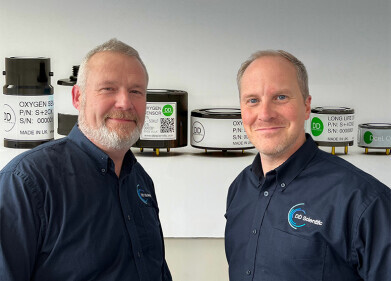Business News
Will Hydrogen Ever Take Off?
Jul 31 2020
At the turn of the millennium, hydrogen was being touted as the ideal energy source to lead us into a cleaner, more sustainable future. Because it doesn’t give off any direct emissions other than water vapor, it was seen as the perfect alternative to environmentally damaging fossil fuels like oil, coal and gas.
However, hydrogen suffered a number of teething problems, including the lack of infrastructure set up to deal with it, the absence of a battery capable of storing the power it creates and the polluting side-effects of producing the gas in the first place. For that reason, hydrogen fell behind in the race for environmentally friendly road transportation, losing out to electric vehicles (EVs) and hybrids.
Now, however, it appears that hydrogen may be making something of a comeback. Prime Minister Boris Johnson recently announced he wished to make the UK a world leader in hydrogen technology, while Germany and the EU have also been investing resources into it. Therefore it’s feasible that hydrogen’s hour could finally be on hand at long last.
A series of setbacks
Hydrogen power works by storing the gas in a fuel cell. When it comes into contact with oxygen, a powerful reaction occurs which is capable of creating electricity. The only direct emission from a vehicle or piece of machinery powered by hydrogen is water, making it a far cleaner source of energy generation than traditional ones.
However, it hasn’t been plain sailing for hydrogen. In the battle to dominate the automotive industry, it lost out due to two principal reasons. Firstly, there is no existing hydrogen infrastructure in place across the UK, while the widespread electrical network was already set up to provide convenient charging points for EVs. Secondly, the technology to store hydrogen power in a battery was nowhere near as advanced as it was with straightforward electricity generation.
Finally, and perhaps most problematically of all, the vast majority of hydrogen produced in the UK is creating by separating it from natural gas, which is itself an expensive process that emits a significant amount of greenhouse gases.
Changing fortunes?
This latter problem may have a solution in the form of surplus renewable energy. Power demand drops off sharply during nightfall, but the wind and the waves do not stop blowing or churning. The excess power generated at these times could be used to synthesize hydrogen cleanly and safely, thus removing emissions from the entire supply chain.
This solution isn’t without its critics, though. For one thing, it’s an incredibly expensive undertaking; for another, it’s inefficient because it involves converting electricity into a gas, then back into electricity once more. In fact, EV pioneer Elon Musk has called the fuel cells powered in such a fashion “fool cells”, saying the whole idea is “staggeringly dumb”.
Whatever the opinions of hydrogen’s detractors, it certainly has its backers, as well. Germany has invested €7 million in building a hub of hydrogen refuelling stations and developing a prototype hydrogen train, while the EU is reportedly hatching plans to make the Euro the official currency of hydrogen, in much the same way that the US dollar is for the oil market. If true, it could signal a revival of the hydrogen industry at long last.
Digital Edition
IET 34.2 March 2024
March 2024
Gas Detection - Biogas batch fermentation system for laboratory use with automatic gas analysis in real time Water/Wastewater - Upcycling sensors for sustainable nature management - Prist...
View all digital editions
Events
Apr 18 2024 Shanghai, China
Apr 22 2024 Hannover, Germany
Apr 22 2024 Marrakech, Morroco
Apr 23 2024 Kuala Lumpur, Malaysia
Apr 23 2024 Kintex, South Korea



















